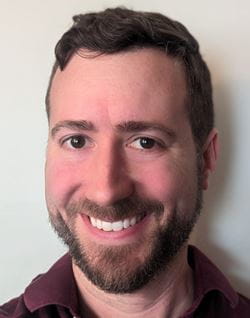
5/9/2023
PITTSBURGH — University of Pittsburgh researchers have developed a universal receptor system that allows T cells to recognize any cell surface target, enabling highly customizable CAR T cell and other immunotherapies for treating cancer and other diseases. The discovery could extend into solid tumors and give more patients access to the game-changing results CAR T cell therapy has produced in certain blood cancers.
Described in a Nature Communications study published today, the new approach involves engineering T cells with receptors bearing a universal “SNAPtag" that fuses with antibodies targeting different proteins. By tweaking the type or dose of these antibodies, treatments could be tailored for optimal immune responses.
The researchers showed that their SNAP approach works in two important receptors: CAR receptors, a synthetic T cell receptor that coordinates a suite of immune responses, and SynNotch, a synthetic receptor that can be programmed to activate just about any gene. With the addition of SNAP, the possibilities for customized therapies become almost endless.
 “We showed for the first time that we can make a universal SynNotch receptor. This SNAP-SynNotch system is super programmable because you can have both designer input and designer gene output,” said senior author Jason Lohmueller, Ph.D., assistant professor of surgery and immunology in the division of surgical oncology at the Pitt School of Medicine and investigator at UPMC Hillman Cancer Center. “Our hope is that we can use this approach to make cell therapies and deliver genes for cancer, autoimmune disorders, organ transplantation tolerance and more.”
“We showed for the first time that we can make a universal SynNotch receptor. This SNAP-SynNotch system is super programmable because you can have both designer input and designer gene output,” said senior author Jason Lohmueller, Ph.D., assistant professor of surgery and immunology in the division of surgical oncology at the Pitt School of Medicine and investigator at UPMC Hillman Cancer Center. “Our hope is that we can use this approach to make cell therapies and deliver genes for cancer, autoimmune disorders, organ transplantation tolerance and more.”
CAR T cell immunotherapy involves engineering a patient’s own cells so that the T cell receptor recognizes a specific protein on cancer cells before infusing them back into the patient.
“One of the big problems with CAR T therapy is that you’re targeting just one protein,” explained Lohmueller. “If the tumor evolves to lose that protein or downregulate it, you need to re-engineer the T cells a second time, which is a highly involved and expensive process.”
To overcome this problem, Lohmueller, first author Elisa Ruffo, Ph.D., postdoctoral associate at Pitt, Alexander Deiters, Ph.D., professor of chemistry at Pitt and their colleagues developed universal SNAP-CAR T cells by adding a SNAPtag enzyme to the CAR receptor. These cells are administered along with cancer-targeting antibodies that are labeled with a molecule called benzylguanine.
Via a bio-orthogonal chemistry — a type of reaction that occurs in living systems without interfering with natural processes — the SNAPtag reacts with benzylguanine, fusing the antibody to the receptor. Adding different antibodies, at the same time or one after another, allows the receptor to recognize different tumor features.
“What’s unique about our approach is how the T cell interacts with the antibody. It’s not just binding, but fusing via covalent attachment — the strongest form of chemical bond,” explained Lohmueller. “This type of bio-orthogonal approach has been shown to work in animals for imaging purposes, but we’re among the first to use it therapeutically, so we’re really pushing the boundaries of covalent technology.”
An advantage of this tight bond means that activation of the receptor can be achieved with lower doses of antibody, said Lohmueller. Using mathematical modeling, graduate student Adam Butchy and Natasa Miskov-Zivanov, Ph.D., assistant professor of electrical and computer engineering at Pitt’s Swanson School of Engineering, showed that it may also be possible to get activity from weaker interactions between antibodies and tumor cells, giving greater flexibility to the types of cancer proteins that can be targeted.
The covalent bond was also the secret ingredient for creating SNAP-SynNotch cells. When a SynNotch receptor is activated, mechanical pulling forces stretch the receptor to expose part of the protein, which is then cut to release a transcription factor that travels to the cell’s nucleus to turn on expression of a chosen gene.
“We found that we needed the strength of a covalent bond to tolerate that pulling force,” explained Lohmueller. “If we just had binding between receptor and antibody, the receptor would come apart and we wouldn’t get signaling.”
The researchers showed that their universal SNAP-CAR and SNAP-SynNotch receptors could be activated in response to different targets by adding the corresponding antibodies. SNAP-CAR T cells were also able to simultaneously target multiple proteins on different types of cells, suggesting that they could help avoid cancer relapse due to variation in tumor targets or loss of those targets.
In a mouse model of cancer, treatment with SNAP-CAR T cells shrunk tumors and greatly prolonged survival, an important proof-of-concept that sets the stage to test this approach in clinical trials in partnership with Coeptis Therapeutics, which has licensed the SNAP-CAR technology from Pitt.
Other authors on the study were Yaniv Tivon, Victor So, Michael Kvorjak, Avani Parikh, M.S., Eric L. Adams, M.D., and Olivera J. Finn, Ph.D., all of Pitt or UPMC.
This work was supported by the National Institutes of Health (R01 GM142007, R35 CA210039, R21 AI130815, 1S10OD011925-01 and P3 0CA047904), the Defense Advanced Research Projects Agency (W911NF-17-1-0135), the Italian Foundation for Cancer Research (22321), and the Michael G Wells Prize.
PHOTO DETAILS: (click image for high-res version)
CREDIT: Jason Lohmueller
CAPTION: Jason Lohmueller, Ph.D., assistant professor of surgery and immunology in the division of surgical oncology at the Pitt School of Medicine and investigator at UPMC Hillman Cancer Center
















